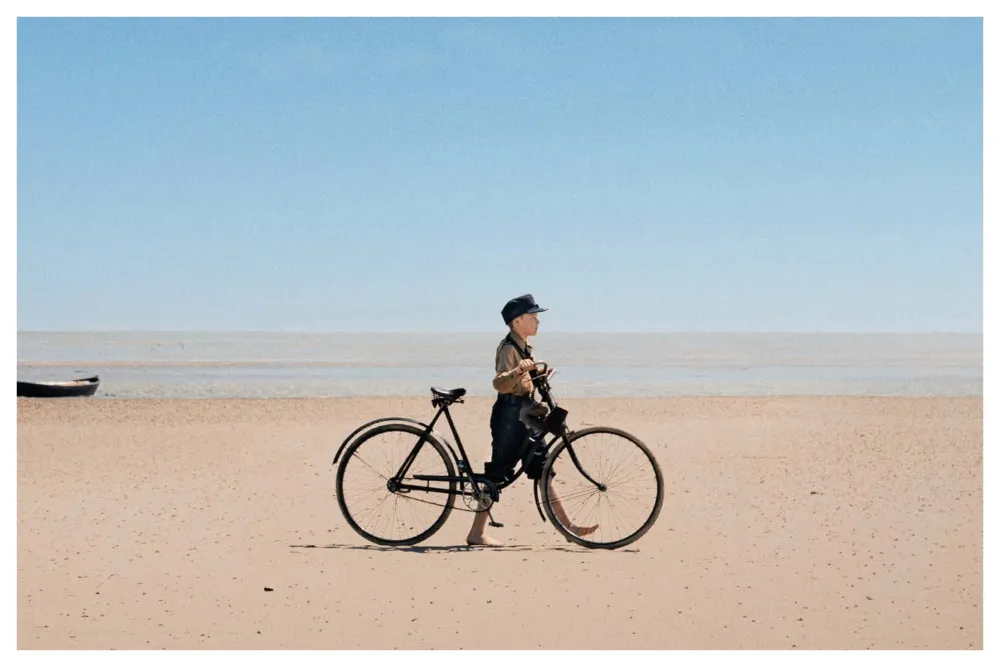German-Turkish director Fatih Akin, whose “Amrum” debuts Thursday at the Cannes Film Festival, is now working on two new films, a documentary, “Anatolian Dragon,” and a narrative feature, “Ghosts,” which will start shooting this summer, he has confirmed to Variety.
The documentary follows Turkish singer-songwriter Gaye Su Akyol as she works on her latest album in Berlin. Iggy Pop is a fan of her music, Akin said, and, like Pop in the 1970s, has found a creative refuge in the city.
“She had to leave Turkey after she got in trouble about her lyrics in this very misogynist society that the country has become,” Akin explained. “In the last five or six years, almost a quarter-million Turkish people, educated people, have left Turkey — doctors, scientists, you know. There has been a huge brain drain.”
Akin, whose parents moved from Turkey to Germany in the 1960s, added: “I would like to make a portrait of this generation who are leaving the country, and she stands for that generation.”
“Ghosts” is based on a screenplay by Ruth Toma and Akin is currently doing the rewrite. “It’s kind of a love story for the audience that watched ‘Rheingold,’” he said, referring to his 2022 gangster film. “That was a huge success in Germany, and we had this audience running into the multiplex. These were people of a certain background, mostly from the Middle East, who discovered the cinema with this film. And, it’s kind of like, ‘OK, if they like the gangster flick, what about if I give them a love story?’”
“Amrum” is set in 1945 on the German island of Amrum, where 12-year-old Nanning — a refugee from his bomb-destroyed home in Hamburg — discovers a rural idyll. He learns to hunt, fish, dig for potatoes and gather honey, but gradually he also learns the truth about his parents, who are both devoted followers of Hitler, which will lead to his expulsion from this paradise.
In terms of the theme of the loss of innocence, Akin was influenced in part by reading John Milton’s poem “Paradise Lost,” but, cinematographically, he drew inspiration from Vittorio De Sica’s “Bicycle Thieves” and “Shoeshine,” and Rob Reiner’s “Stand by Me,” he said.
The film was based on the childhood memories of German filmmaker Hark Bohm, who wrote the original screenplay, which was then rewritten by Akin.
One of the elements that attracted Akin to Bohm’s story was the relationship between a child and their parents, when the parents have extreme political views. “You cannot choose your parents, so here you have this kid, and he loves his mother, and his mother is a Nazi, and there’s this mother, and she is a Nazi, and she loves the kid. I didn’t want to create empathy for Nazis — that was not my purpose at all — but I was like, ‘I have to define this love. I have to tell the story of the love between mother and child. If I don’t have that, I don’t have a movie.’”
The recent rise of the far right in Germany was one of the reasons why Akin took on the project, he said, with the far-right Alternative for Germany party rapidly gaining strength. “J.D. Vance can say what he wants, but it is an extreme-right party. If you have 10 million people who vote for them, it doesn’t mean you have to respect them or give them space, fuck that. Sooner or later, they touch your family or someone you know. So, we have to deal with that, and I think storytelling could help to reflect on that.”
He described ”Amrum” as a journey into the depths of his “German soul,” and said he is willing to fight to defend the values of his country, including freedom of expression. “There is an erasing of those values all around the world, and in Germany too, and I, not just as a filmmaker, but as a member of that society, have to defend my German soul.”

